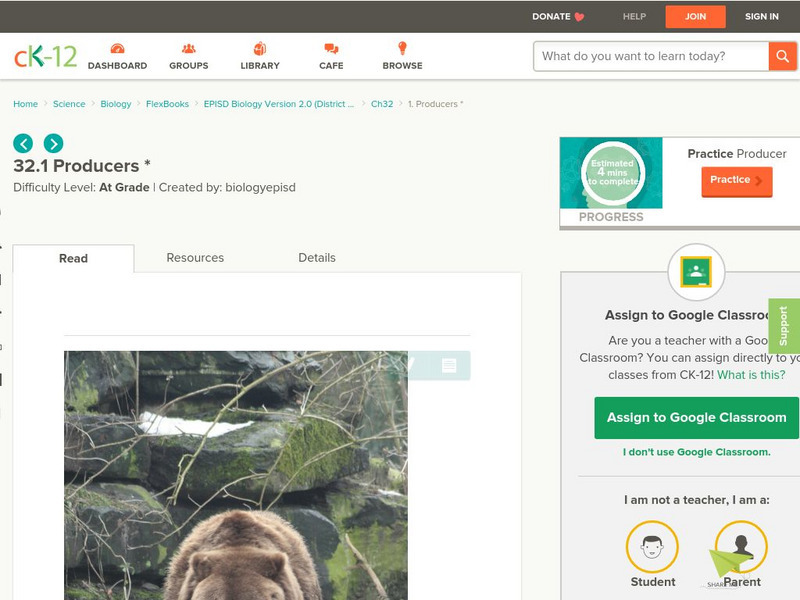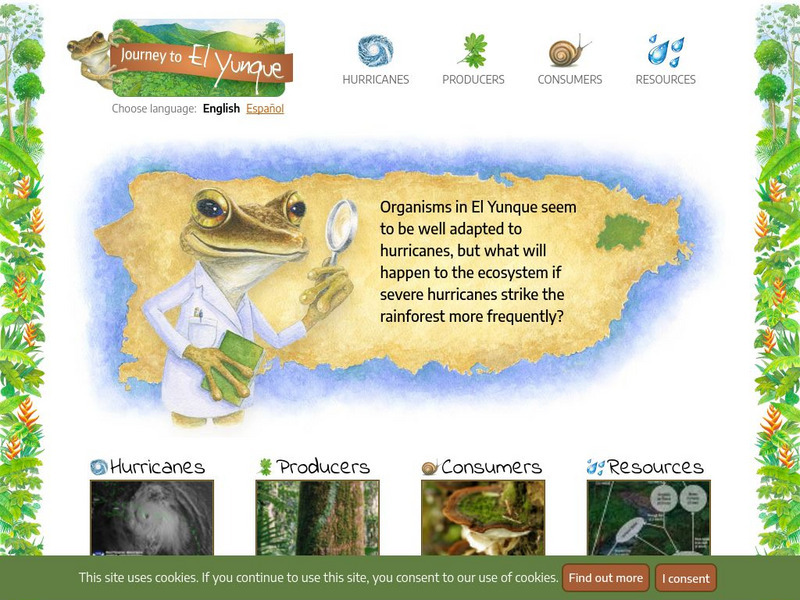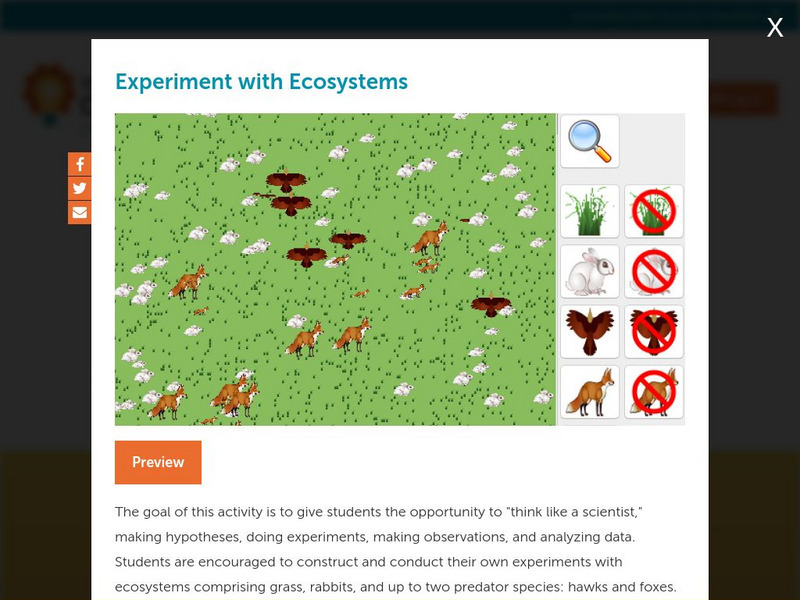Curated OER
What is a Food Chain?
In this food chain worksheet, students write in the 3 steps that occur in a basic food chain. This worksheet is a graphic organizer.
Curated OER
Trophic Levels and Food Webs
In this biology activity, students identify and locate various vocabulary terms related to trophic levels and food webs. There are 27 biology terms located in the word search.
Curated OER
Biology Vocabulary
In this biology worksheet, students identify and locate various vocabulary terms pertaining to food webs and animal species. There are 52 biology terms located in the word search.
Curated OER
Food Chain
In this science worksheet, students match the words given in the first column with the correct definition found in the second column. There are six vocabulary terms to define.
Curated OER
Food Webs
High schoolers are explained that they are spending the next few days researching an organism in preparation for a field trip. They are shown an overhead of the Field Guide. Students discuss what habitat means. They use their organism...
Curated OER
The Macaroni Lab
Pupils are given an introduction to the "ecosystem", what factors make up an ecosystem (biotic factors, abiotic factors, food chain, producers, consumers and decomposers) and how those factors interact.
Curated OER
Food Type And Calories Per Square Meter
Students compare the efficiency of producing food calories in different types of food then calculate how much land is required to supply their food for a year. They then graph the results.
Curated OER
"Working in a Hat Factory"
Students analyze the understanding of what a producer is. Students distinguish between producers and consumers. Students produce a hat of his/her own. Students will share creations with each other.
Curated OER
The Wildlife Web I
Learners explore the relationship between producers and consumers. In this activity, they trace the ingredients in the foods they eat to plants. Supplement to Natureworks episode from New Hampshire Public Television, but activities may...
Curated OER
The Chain Gang
Students perform a food chain simulation to determine what happens when a food chain is broken.
Curated OER
Web of Life - Alaska
Seventh graders research Alaska, then construct their own food web after researching a habitat of their choice.
Curated OER
In the Eyes of the Beholder
High schoolers investigate the relationship between the consumers and producers with the role that the government plays in the free enterprise system.
Georgia Department of Education
Ga Virtual Learning: Marine Plants & Algae
Students are introduced to the producers of the various marine environments, their chemical processes, and identifying characteristics.
US Department of Labor
Bureau of Labor Statistics: Producers and Directors
This resource provides the most recent statistics and information on the careers of directors and producers. Topics covered include working conditions, training, job outlook, earnings, and links to related careers.
BioEd Online
Bio Ed Online: Food Webs
Learners construct possible food webs for six different ecosystems as they learn about the roles of producers, consumers, herbivores, carnivores and decomposers.
Edutopia
Edutopia: Goods and Services [Pdf]
A unit that teaches the difference between goods and services, the difference between producers and consumers, the difference between human, natural, and capital resources, and the difference between bartering/trading and buying/selling....
Annenberg Foundation
Annenberg Learner: The Habitable Planet: Ecosystems: Energy Flow Through
Detailed explanation of the processes by which energy flows through an ecosystem. Scroll down and open Section 3.
Other
Pde Sas: Relationships Among Organisms
In this lesson, young scholars compare various types of relationships among organisms (i.e., biotic interactions). Students will: explain the roles of producers and consumers, and predators and prey in an ecosystem. Explain the levels of...
CK-12 Foundation
Ck 12: Episd: Producers
[Free Registration/Login may be required to access all resource tools.] Students will recognize and understand the role of producers in the food chain within different ecosystems.
Princeton Review
The Princeton Review: Career Television Producer
An overview of the career of a television producer, including how to get into the career, related careers, the projected quality of life, and future job outlook. Well organized information, very readable, and easy to navigate.
Other
The Habitable Planet Simulation
This activity is designed to accompany an interactive on the Annenberg Learner website. Students investigate the changes that take place in an ecosystem when they alter the organisms in a food web. As they work with the simulation, they...
Other
The Learning Partnership: Journey to El Yunque
In this set of learning modules, students examine the impact of hurricane weather on the El Yunque rainforest in Puerto Rico. They learn about hurricanes, producers, consumers, and the food chain, and how disruptions in organisms'...
NOAA
Noaa: Estuaries 101 Curriculum: Biodiversity in an Estuary
This activity introduces students to the amazing biodiversity of an estuarine environment, focusing on the habitats in the Rookery Bay National EstuarineResearch Reserve, Florida. They begin by exploring the estuary using Google Maps....
Concord Consortium
Concord Consortium: Stem Resources: Experiment With Ecosystems
Learn what happens to different populations of organisms as their ecosystem changes. Design your own experiment and make your own guesses with what the result will be with this virtual ecosystem. Also experiment with producer/consumer...








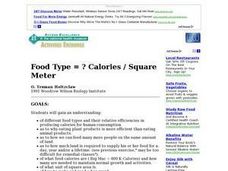

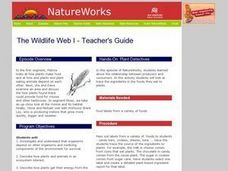

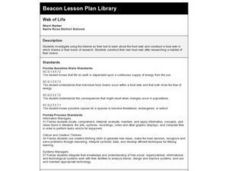

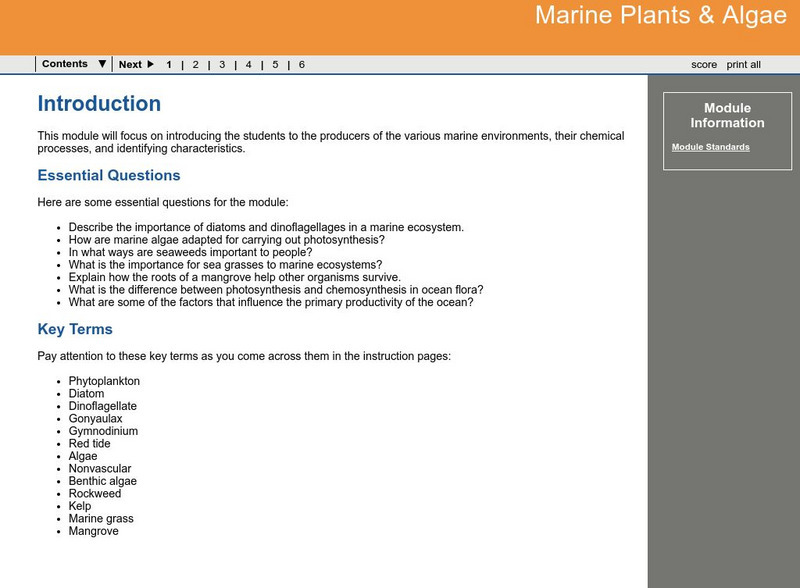

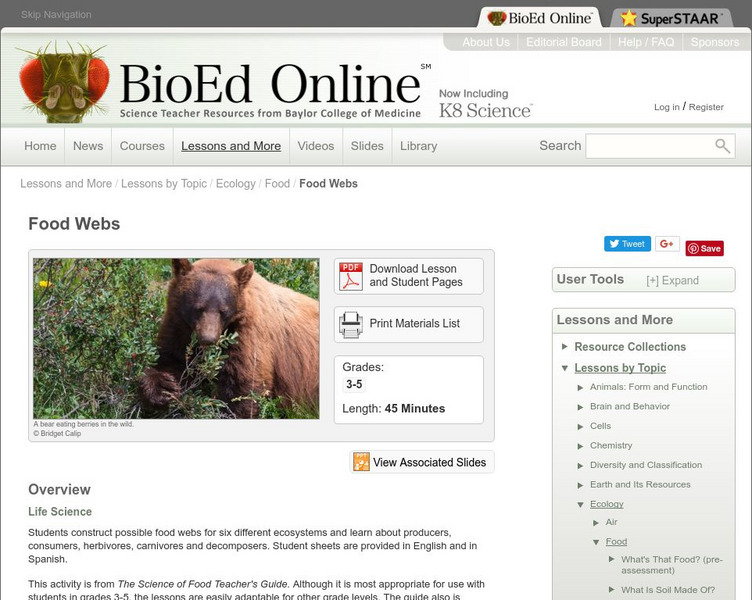
![Edutopia: Goods and Services [Pdf] Activity Edutopia: Goods and Services [Pdf] Activity](https://d15y2dacu3jp90.cloudfront.net/images/attachment_defaults/resource/large/FPO-knovation.png)

